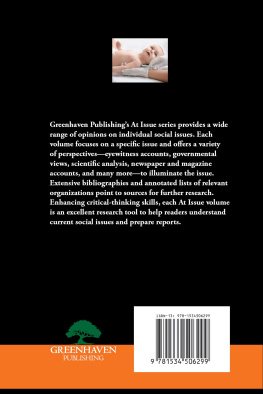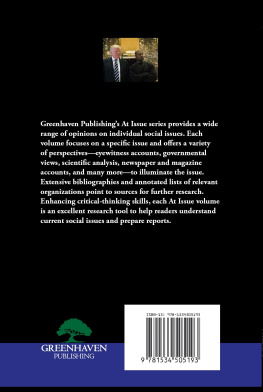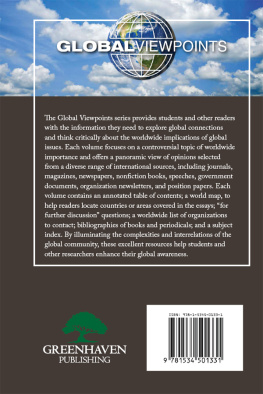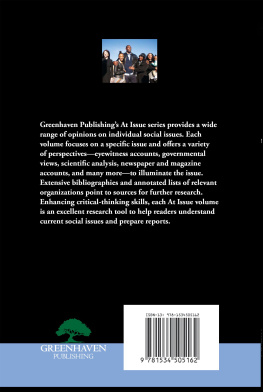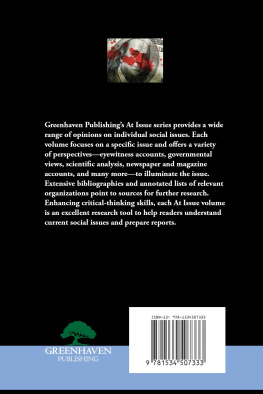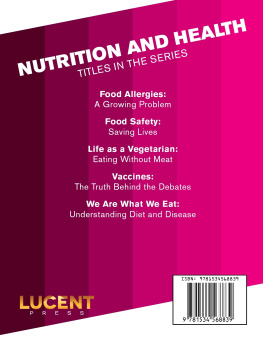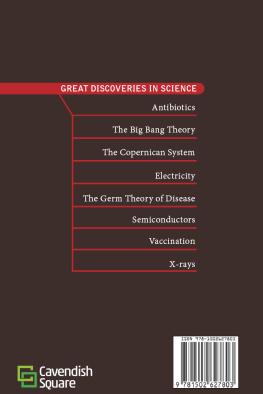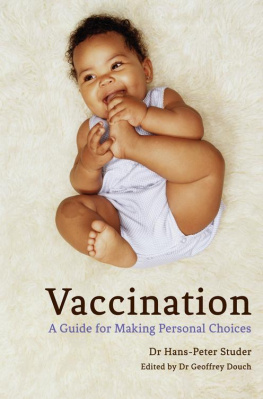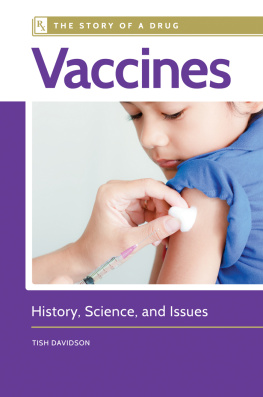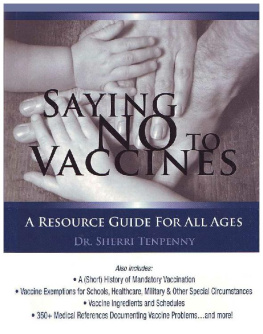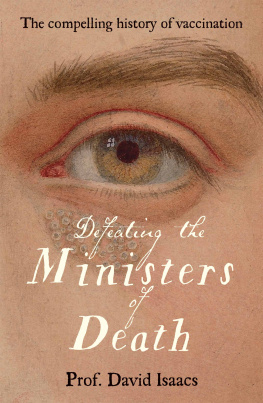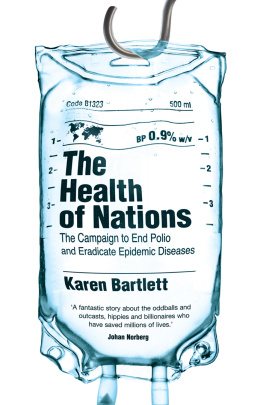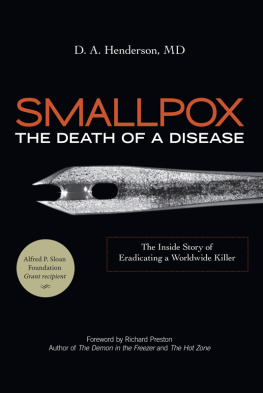

Vaccination
Other Books in the At Issue Series
Athlete Activism
Celebrities in Politics
Male Privilege
Mob Rule or the Wisdom of the Crowd?
The Opioid Crisis
Public Outrage and Protest
Sexual Consent
Student Debt
Universal Health Care
Vaping
Wrongful Conviction and Exoneration
Published in 2020 by Greenhaven Publishing, LLC
353 3rd Avenue, Suite 255, New York, NY 10010
Copyright 2020 by Greenhaven Publishing, LLC
First Edition
All rights reserved. No part of this book may be reproduced in any form without permission in writing from the publisher, except by a reviewer.
Articles in Greenhaven Publishing anthologies are often edited for length to meet page requirements. In addition, original titles of these works are changed to clearly present the main thesis and to explicitly indicate the authors opinion. Every effort is made to ensure that Greenhaven Publishing accurately reflects the original intent of the authors. Every effort has been made to trace the owners of the copyrighted material.
Cover image: New Africa/Shutterstock.com
Library of Congress Cataloging-in-Publication Data
Names: Idzikowski, Lisa, editor.
Title: Vaccination / Lisa Idzikowski, book editor.
Description: First edition. | New York: Greenhaven Publishing, 2020. | Series: At issue | Includes bibliographical references and index. | Audience: Grades 912.
Identifiers: LCCN 2019022831 | ISBN 9781534506299 (library binding) | ISBN 9781534506282 (paperback)
Subjects: LCSH: VaccinesJuvenile literature. | VaccinationJuvenile literature. | VaccinationSocial aspectsJuvenile literature.
Classification: LCC RA638 .V27 2020 | DDC 615.3/72dc23
LC record available at https://lccn.loc.gov/2019022831
Manufactured in the United States of America
Website: http://greenhavenpublishing.com
Contents
Dr. Flavia Bustreo
Chloe Reichel
Christine Stabell Benn
US Department of Health and Human Services
Allen Cheng
College of Physicians of Philadelphia
Paul Duprex
Brie Zeltner
Robert P. Murphy
Bretigne Shaffer
Matthew Motta, Steven Sylvester, and Timothy Callaghan
Zoe Williams
Irene A. Harmsen, et al.
Bobby Duffy
Nadia Arif, et al.
World Travel & Tourism Council
Maggie Fox
Marla Broadfoot
Health Europa
Introduction
M ost people are familiar with vaccinations and likely, depending on a variety of reasons, have different opinions of the procedure. Its probably safe to say that many children dont like getting a shot. Most medical professionals and public health officials insist that vaccines protect the receiver from disease. Many parents recognize that getting scheduled vaccinations are a normal part of ensuring the health of their babies. But some parents refuse to vaccinate and insist that vaccinations are risky, pose a threat to well-being, or even cause disease and health problems. And still other individuals proclaim that vaccines and vaccinations go against an individuals personal right to decide about what they do with their own bodies.
Vaccination involves introducing microorganisms into humans in order to develop immunity. The development of vaccines are among historys most important medical breakthroughs. As vaccines became available to the public, horrifying diseases that commonly caused death or debilitating illness were conquered. Of course, not everyone trusted the medical establishment. Toward the late 1700s in the United States, measures were taken to increase faith in the potential to prevent disease. In 1796, British doctor Edward Jenner devised a system of transferring live cowpox virus into a persons arm in order to protect the person from developing smallpox. Doubters lobbied against what seemed like a crazy idea, but prominent individuals saw the benefit. When Jenners procedure arrived in Virginia, Thomas Jefferson, who was a proponent of scientific thinking and knowledge, championed it. By August 1800, Jefferson had administered the vaccine to more than two hundred of his extended family and neighbors, and over the next few months results were convincing. He determined that the procedure protected against smallpox since none of those so vaccinated contracted the disease.
Knowledge and techniques in medicine continued to improve, and by the twentieth century, the number of vaccines in use had increased, including one for polio, a debilitating and sometimes lethal infectious disease. Up until then, every summer parents dreaded the outbreaks of polio. When Jonas Salk invented the polio vaccine, he became a hero. Then in 1971, the MMR vaccine, for measles, mumps, and rubella, was given. Fast forward to present time, and children can receive as many as twenty-seven shots by the time they reach two years of age.
Not surprisingly, vaccination is a controversial topic. Proponents make a tight case citing numerous statistics about the number of lives saved because of vaccines. According to the World Health Organization (WHO), immunizations currently prevent the death of two million to three million people of all ages each year. Diphtheria, measles, tetanus, and whooping cough are prevented because of vaccines. Many people in the US agree with WHO, as reported by a 2016 survey by Pew Research. A full 73% of US adults said the health benefits of the MMR vaccine are high, while 66% saw the risk of side effects as low. Overall, 88% said the benefits of the MMR vaccine outweigh the risks, while 10% said the risks outweigh the benefits.
Opponents are equally committed and argue against the establishment that promotes vaccination. They often quote parents who say that their children were healthy until they received an immunization. Naturally, parents want to protect their children and act from this standpoint. They want to do the right thing, which can be difficult, especially when very vocal celebrities spread misinformation about vaccines. In 2019, US Surgeon General Dr. Jerome M. Adams publicly went on record to say, Misinformation about vaccines is still widely reported, so we feel it is crucial to state clearly and unambiguously: Vaccines do not cause autism. That fact was demonstrated again this week in a new study on MMR vaccination by Danish researchers.
Nadine Gartner, a lawyer and founder of Boost Oregon, a nonprofit organization dedicated to the truth about vaccines, says parents are acting out of fear and confusion. Her agency organizes workshops that bring together parents seeking information with a variety of medical professionals. Gartner says that her educators discuss many different topics surrounding the vaccine debate. Their aim is to arm parents with scientific information, calm fears, lessen confusion, and enable parents to make informed decisions. To date, more than three hundred families have attended workshops at Boost Oregon.
Several other factors cause a mistrust of vaccinations. Some people in the United States believe that individuals have the right to make decisions about health independent of how it may impact others and often dont trust scientific experts. A Pew survey showed that 17 percent of Americans believe parents have the right to decide whether to vaccinate their children even if it creates health risks for others. And additionally, not everyone trusts the information provided by medical science. Only 55 percent trust medical experts to give accurate information about the MMR vaccine, leaving the rest to be somewhat trustful or not at all so.
Next page
